Lecture 4 New English 1. External History.

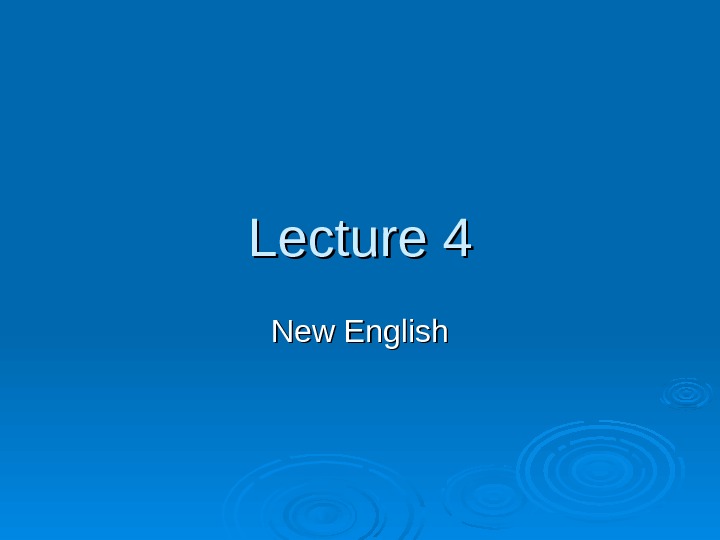

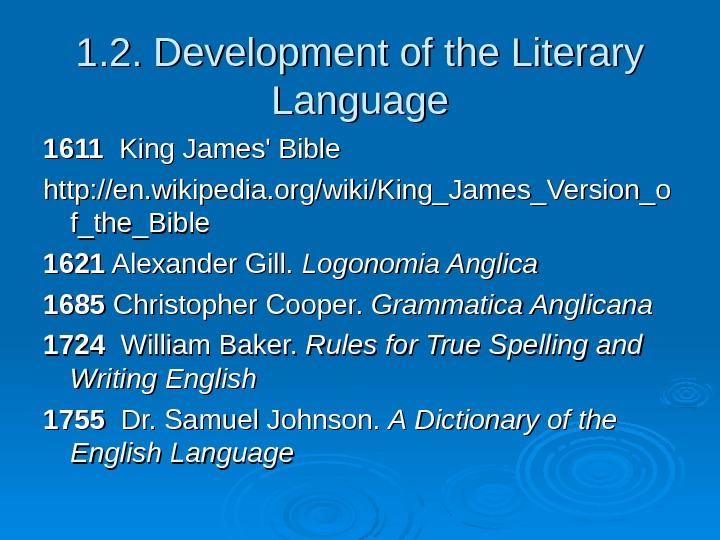
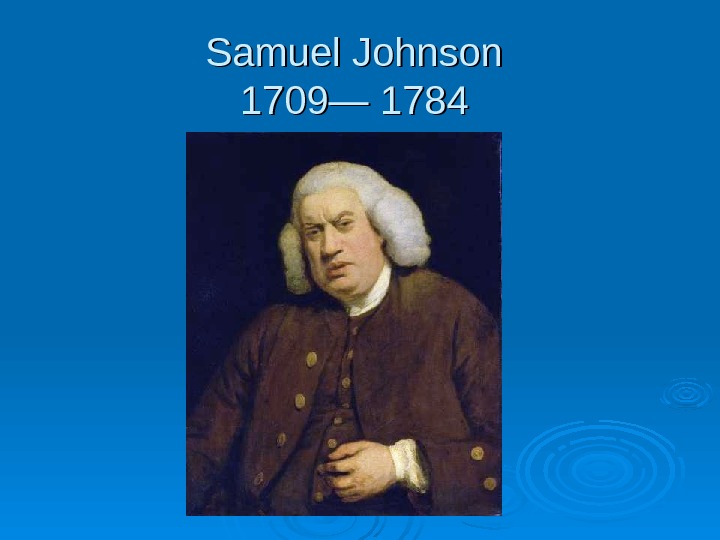
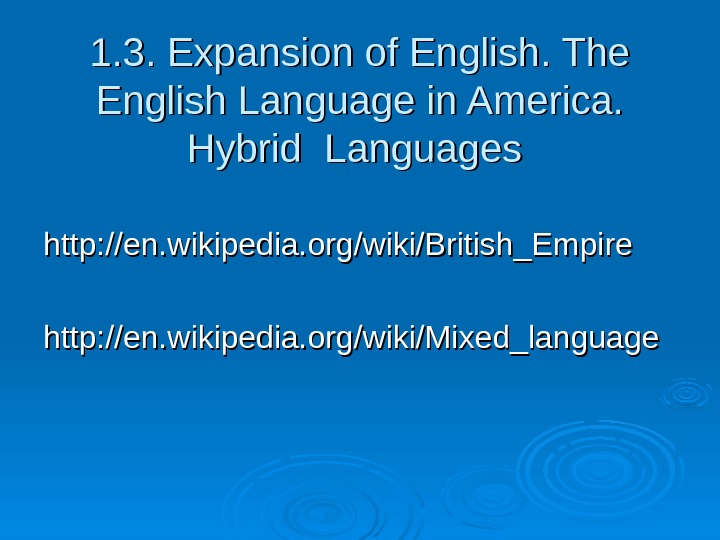
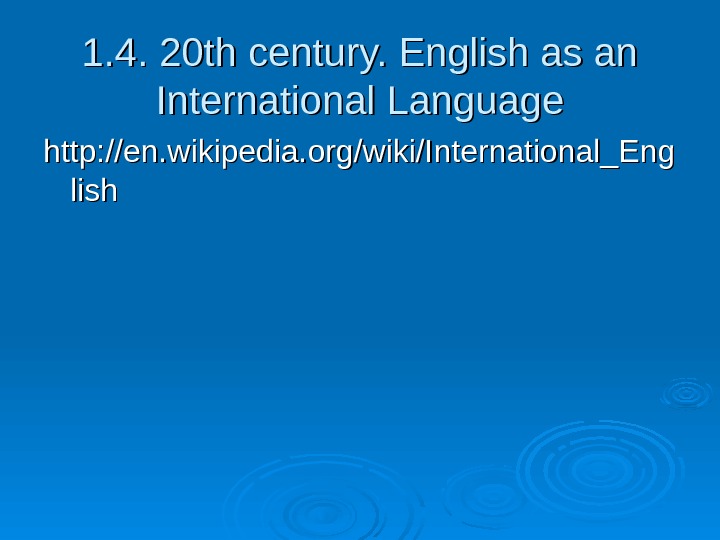

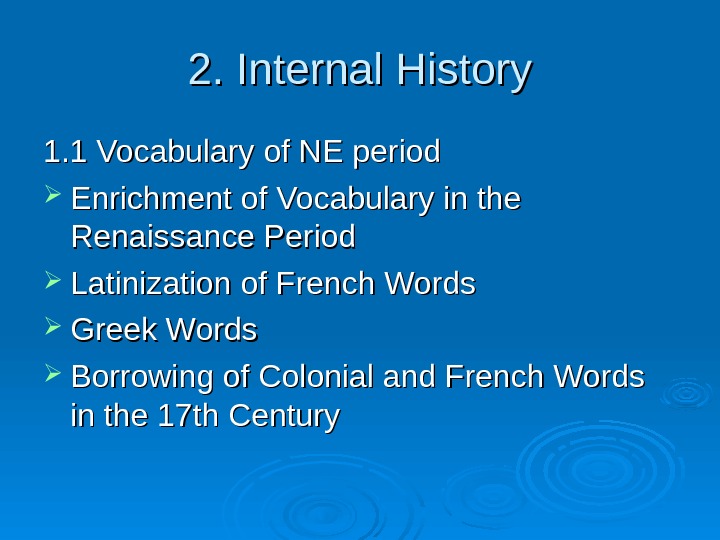
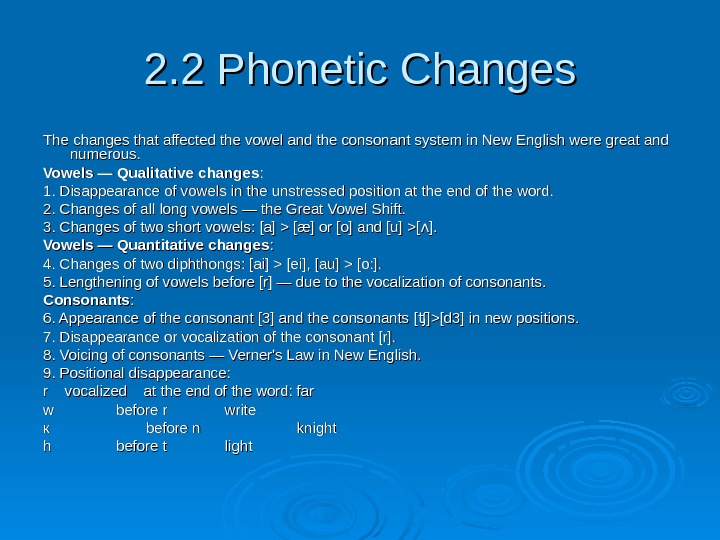
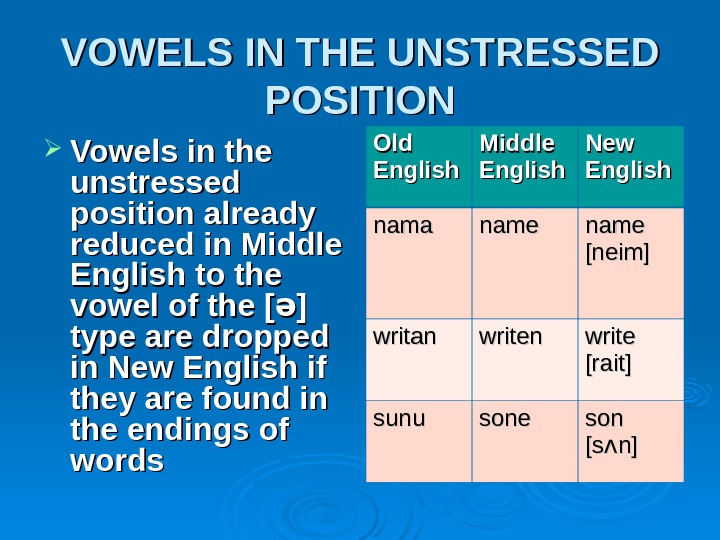
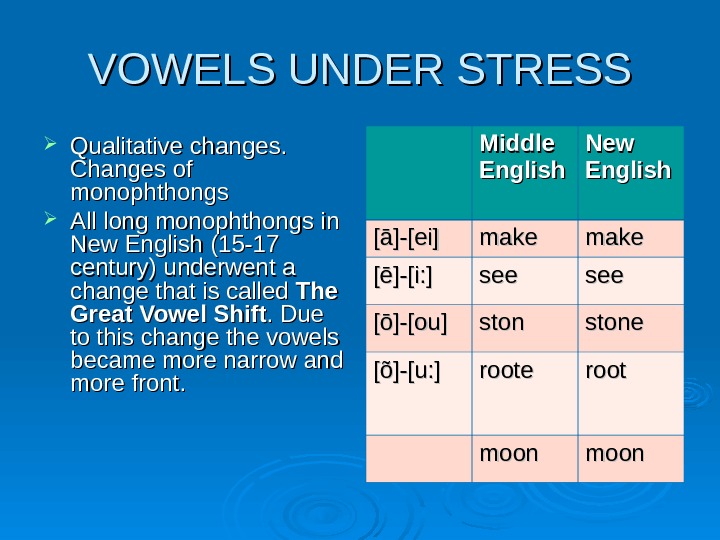
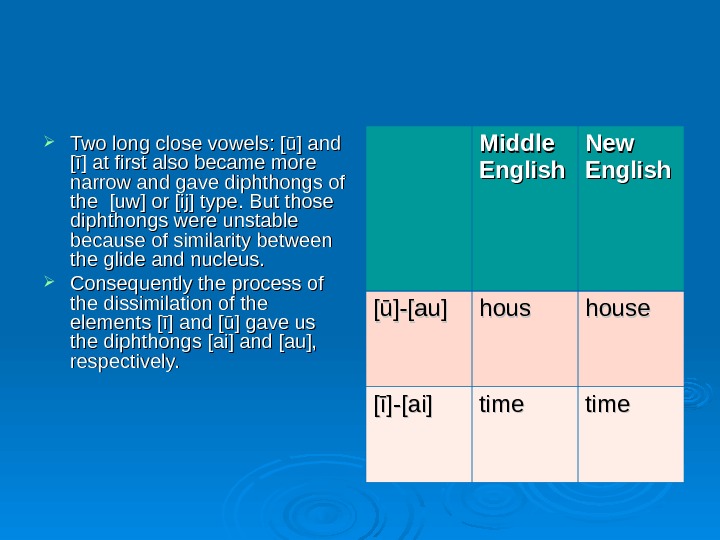
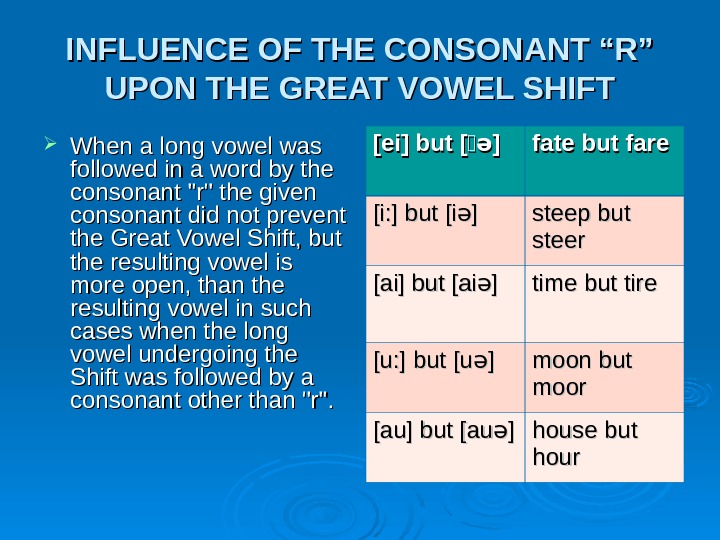
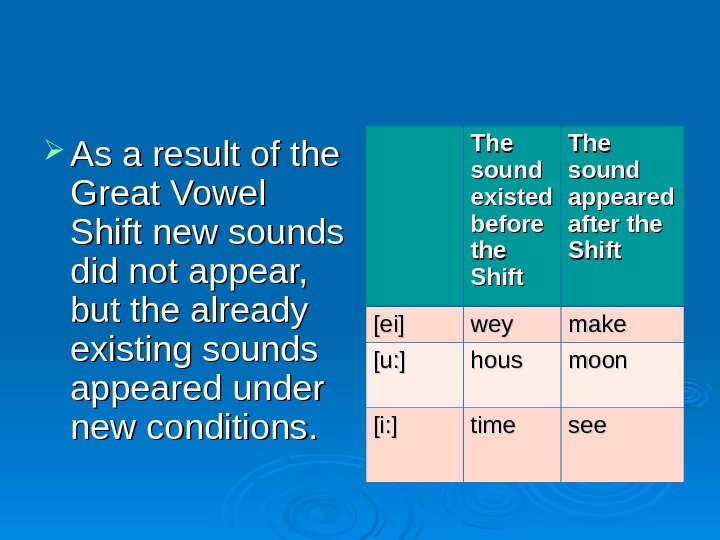
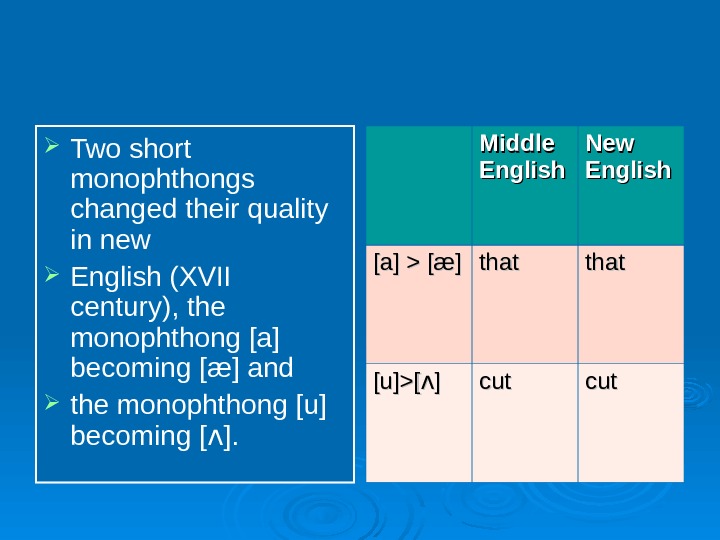
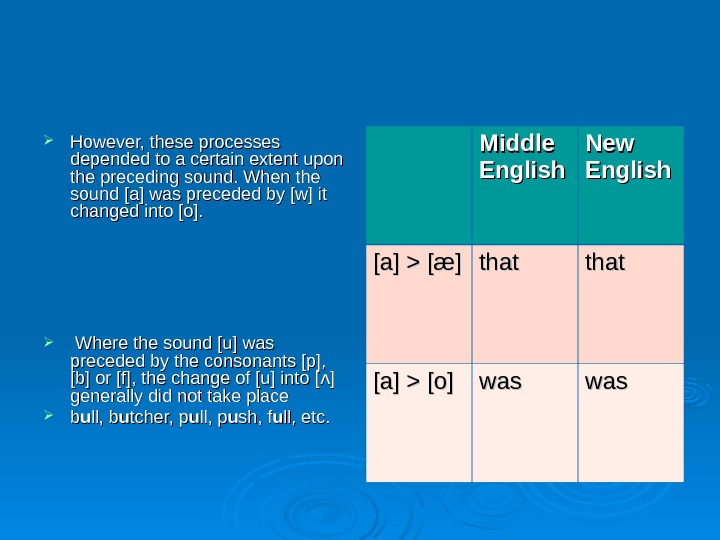
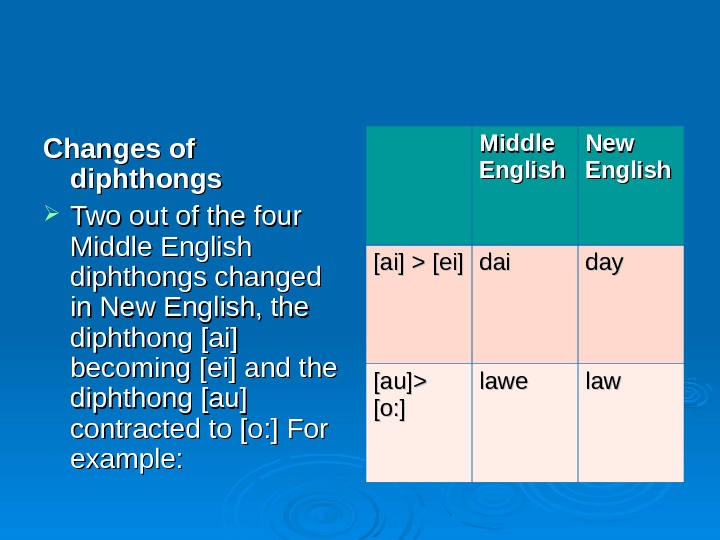
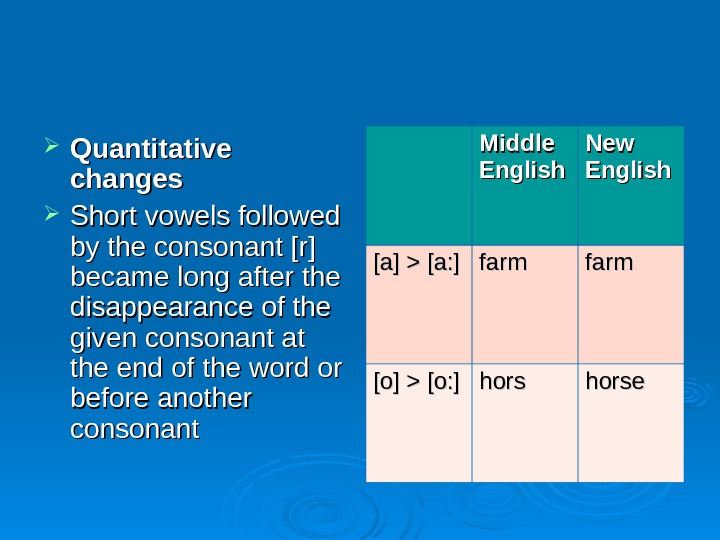
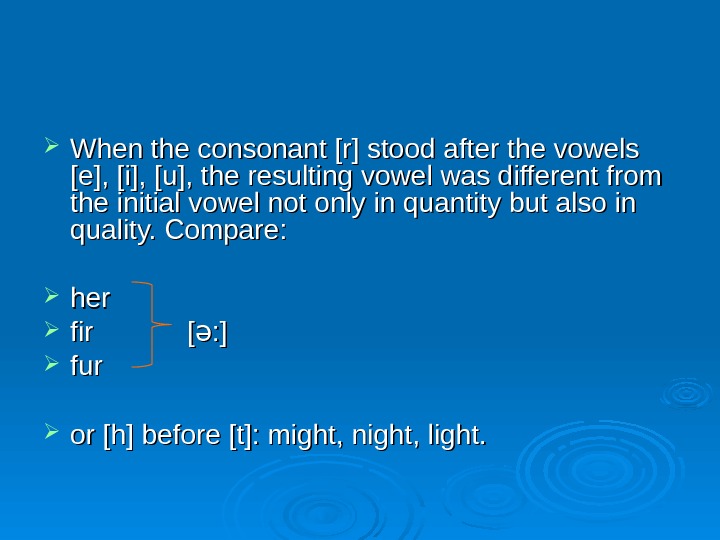
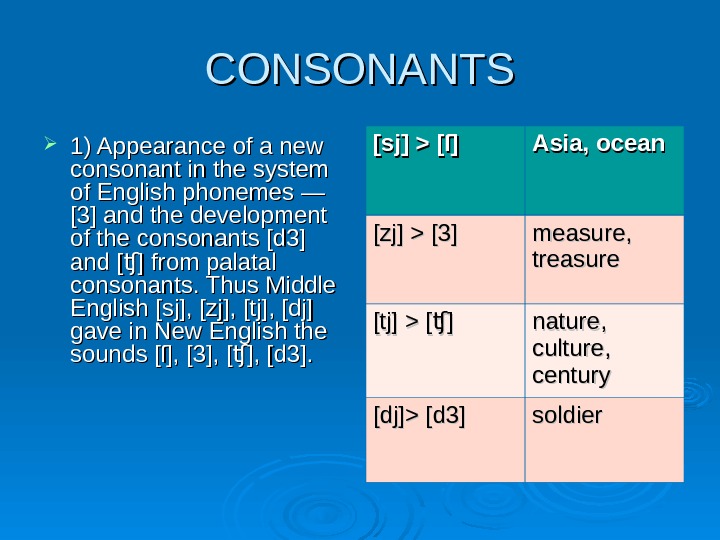
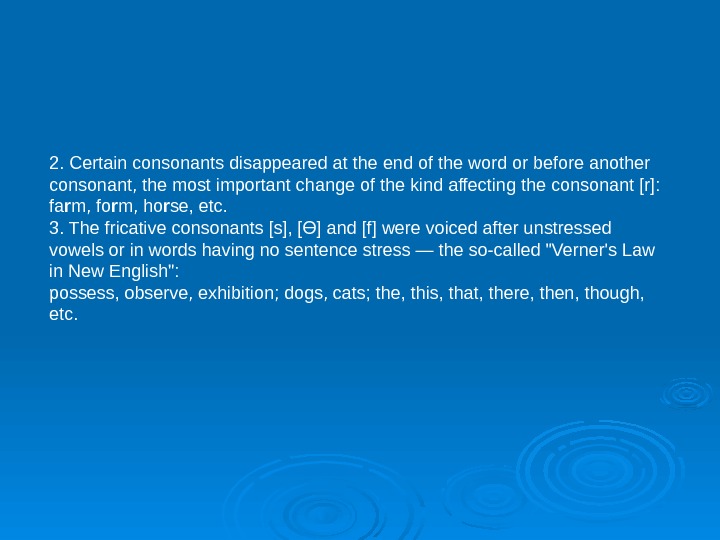
- Размер: 384 Кб
- Количество слайдов: 21
Описание презентации Lecture 4 New English 1. External History. по слайдам
 Lecture 4 New English
Lecture 4 New English
 1. External History. Formation of the National Language 1. 1. Spread of London Dialect in the 15 th Century The formation of a national language was mostly caused by the Wars of the Roses (1455— 1485) the introduction of printing http: //en. wikipedia. org/wiki/William_Caxton http: //www. uni-duisburg-essen. de/SHE/HE_Dialect s. Modern. English. htm
1. External History. Formation of the National Language 1. 1. Spread of London Dialect in the 15 th Century The formation of a national language was mostly caused by the Wars of the Roses (1455— 1485) the introduction of printing http: //en. wikipedia. org/wiki/William_Caxton http: //www. uni-duisburg-essen. de/SHE/HE_Dialect s. Modern. English. htm
 1. 2. Development of the Literary Language 1611 King James’ Bible http: //en. wikipedia. org/wiki/King_James_Version_o f_the_Bible 1621 Alexander Gill. Logonomia Anglica 1685 Christopher Cooper. Grammatica Anglicana 1724 William Baker. Rules for True Spelling and Writing English 1755 Dr. Samuel Johnson. AA Dictionary of the English Language
1. 2. Development of the Literary Language 1611 King James’ Bible http: //en. wikipedia. org/wiki/King_James_Version_o f_the_Bible 1621 Alexander Gill. Logonomia Anglica 1685 Christopher Cooper. Grammatica Anglicana 1724 William Baker. Rules for True Spelling and Writing English 1755 Dr. Samuel Johnson. AA Dictionary of the English Language
 Samuel Johnson 1709—
Samuel Johnson 1709—
 1. 3. Expansion of English. The English Language in America. Hybrid Languages http: //en. wikipedia. org/wiki/British_Empire http: //en. wikipedia. org/wiki/Mixed_language
1. 3. Expansion of English. The English Language in America. Hybrid Languages http: //en. wikipedia. org/wiki/British_Empire http: //en. wikipedia. org/wiki/Mixed_language
 1. 4. 20 th century. English as an International Language http: //en. wikipedia. org/wiki/International_Eng lish
1. 4. 20 th century. English as an International Language http: //en. wikipedia. org/wiki/International_Eng lish
 Early New English texts William Shakespeare http: //molcat 1. bl. uk/treasures/shakespeare/s earch. asp
Early New English texts William Shakespeare http: //molcat 1. bl. uk/treasures/shakespeare/s earch. asp
 22. Internal History 1. 1 Vocabulary of NE period Enrichment of Vocabulary in the Renaissance Period Latinization of French Words Greek Words Borrowing of Colonial and French Words in the 17 th Century
22. Internal History 1. 1 Vocabulary of NE period Enrichment of Vocabulary in the Renaissance Period Latinization of French Words Greek Words Borrowing of Colonial and French Words in the 17 th Century
 2. 2 Phonetic Changes The changes that affected the vowel and the consonant system in New English were great and numerous. Vowels — Qualitative changes : : 1. Disappearance of vowels in the unstressed position at the end of the word. 2. Changes of all long vowels — the Great Vowel Shift. 3. Changes of two short vowels: [a] > [æ] or [o] and [u] >[ ]. ʌ Vowels — Quantitative changes : : 4. Changes of two diphthongs: [ai] > [ei], [au] > [o: ]. 5. Lengthening of vowels before [r] — due to the vocalization of consonants. Consonants : : 6. Appearance of the consonant [3] and the consonants [ ]>[d 3] in new positions. ʧ 7. Disappearance or vocalization of the consonant [r]. 8. Voicing of consonants — Verner’s Law in New English. 9. Positional disappearance: r vocalized at the end of the word: far w w before r write к before n knight h h before t light
2. 2 Phonetic Changes The changes that affected the vowel and the consonant system in New English were great and numerous. Vowels — Qualitative changes : : 1. Disappearance of vowels in the unstressed position at the end of the word. 2. Changes of all long vowels — the Great Vowel Shift. 3. Changes of two short vowels: [a] > [æ] or [o] and [u] >[ ]. ʌ Vowels — Quantitative changes : : 4. Changes of two diphthongs: [ai] > [ei], [au] > [o: ]. 5. Lengthening of vowels before [r] — due to the vocalization of consonants. Consonants : : 6. Appearance of the consonant [3] and the consonants [ ]>[d 3] in new positions. ʧ 7. Disappearance or vocalization of the consonant [r]. 8. Voicing of consonants — Verner’s Law in New English. 9. Positional disappearance: r vocalized at the end of the word: far w w before r write к before n knight h h before t light
 VOWELS IN THE UNSTRESSED POSITION Vowels in the unstressed position already reduced in Middle English to the vowel of the [ ] ə type are dropped in New English if they are found in the endings of words Old English Middle English New English nama name [neim] writan writen write [rait] sunu sone son [s n] ʌ[s n]ʌ
VOWELS IN THE UNSTRESSED POSITION Vowels in the unstressed position already reduced in Middle English to the vowel of the [ ] ə type are dropped in New English if they are found in the endings of words Old English Middle English New English nama name [neim] writan writen write [rait] sunu sone son [s n] ʌ[s n]ʌ
 VOWELS UNDER STRESS Qualitative changes. Changes of monophthongs All long monophthongs in New English (15 -17 century) underwent a change that is called The Great Vowel Shift. Due to this change the vowels became more narrow and more front. Middle English New English [ā]-[ei] makemake [ē]-[i: ] seesee [[ ōō ]-[ou] stone [õ]-[u: ] roote root moonmoon
VOWELS UNDER STRESS Qualitative changes. Changes of monophthongs All long monophthongs in New English (15 -17 century) underwent a change that is called The Great Vowel Shift. Due to this change the vowels became more narrow and more front. Middle English New English [ā]-[ei] makemake [ē]-[i: ] seesee [[ ōō ]-[ou] stone [õ]-[u: ] roote root moonmoon
![Two long close vowels: [ū] and [ī] at first also became more narrow and Two long close vowels: [ū] and [ī] at first also became more narrow and](/docs//new_english_images/new_english_11.jpg) Two long close vowels: [ū] and [ī] at first also became more narrow and gave diphthongs of the [uw] or [ij] type. But those diphthongs were unstable because of similarity between the glide and nucleus. Consequently the process of the dissimilation of the elements [ī] and [ū] gave us the diphthongs [ai] and [au], respectively. Middle English New English [ū]-[au] house [ī]-[ai] timetime
Two long close vowels: [ū] and [ī] at first also became more narrow and gave diphthongs of the [uw] or [ij] type. But those diphthongs were unstable because of similarity between the glide and nucleus. Consequently the process of the dissimilation of the elements [ī] and [ū] gave us the diphthongs [ai] and [au], respectively. Middle English New English [ū]-[au] house [ī]-[ai] timetime
 INFLUENCE OF THE CONSONANT “R” UPON THE GREAT VOWEL SHIFT When a long vowel was followed in a word by the consonant «r» the given consonant did not prevent the Great Vowel Shift, but the resulting vowel is more open, than the resulting vowel in such cases when the long vowel undergoing the Shift was followed by a consonant other than «r». [ei] but [ əə ]] fate but fare [i: ] but [i ]ə steep but steer [ai] but [ai ] ə[ai] but [ai ]ə time but tire [[ u: u: ] ] but [u əbut [uə ]] moon but moor [а[а uu ] ] but [ аа u əuə ]] house but hour
INFLUENCE OF THE CONSONANT “R” UPON THE GREAT VOWEL SHIFT When a long vowel was followed in a word by the consonant «r» the given consonant did not prevent the Great Vowel Shift, but the resulting vowel is more open, than the resulting vowel in such cases when the long vowel undergoing the Shift was followed by a consonant other than «r». [ei] but [ əə ]] fate but fare [i: ] but [i ]ə steep but steer [ai] but [ai ] ə[ai] but [ai ]ə time but tire [[ u: u: ] ] but [u əbut [uə ]] moon but moor [а[а uu ] ] but [ аа u əuə ]] house but hour
 As a result of the Great Vowel Shift new sounds did not appear, but the already existing sounds appeared under new conditions. The sound existed before the Shift The sound appeared after the Shift [ei] weywey make [u: ] hous moon [i: ] time seesee
As a result of the Great Vowel Shift new sounds did not appear, but the already existing sounds appeared under new conditions. The sound existed before the Shift The sound appeared after the Shift [ei] weywey make [u: ] hous moon [i: ] time seesee
![Two short monophthongs changed their quality in new English (XVII century), the monophthong [a] Two short monophthongs changed their quality in new English (XVII century), the monophthong [a]](/docs//new_english_images/new_english_14.jpg) Two short monophthongs changed their quality in new English (XVII century), the monophthong [a] becoming [æ] and the monophthong [u] becoming [ ]. ʌ Middle English New English [a] > [æ ]] thatthat [[ uu ]>[]>[ ʌʌ ]] cutcut
Two short monophthongs changed their quality in new English (XVII century), the monophthong [a] becoming [æ] and the monophthong [u] becoming [ ]. ʌ Middle English New English [a] > [æ ]] thatthat [[ uu ]>[]>[ ʌʌ ]] cutcut
 However, these processes depended to a certain extent upon the preceding sound. When the sound [a] was preceded by [w] it changed into [o]. Where the sound [u] was preceded by the consonants [p], [b] or [f], the change of [u] into [ ] ʌ generally did not take place bb uu ll, b uu tcher, p uu ll, p uu sh, f uu ll, etc. Middle English New English [a] > [æ ]] thatthat [a] > [o] waswas
However, these processes depended to a certain extent upon the preceding sound. When the sound [a] was preceded by [w] it changed into [o]. Where the sound [u] was preceded by the consonants [p], [b] or [f], the change of [u] into [ ] ʌ generally did not take place bb uu ll, b uu tcher, p uu ll, p uu sh, f uu ll, etc. Middle English New English [a] > [æ ]] thatthat [a] > [o] waswas
 Changes of diphthongs Two out of the four Middle English diphthongs changed in New English, the diphthong [ai] becoming [ei] and the diphthong [au] contracted to [o: ] For example: Middle English New English [ai] > [ei] daidai dayday [au]> [o: ] lawe lawlaw
Changes of diphthongs Two out of the four Middle English diphthongs changed in New English, the diphthong [ai] becoming [ei] and the diphthong [au] contracted to [o: ] For example: Middle English New English [ai] > [ei] daidai dayday [au]> [o: ] lawe lawlaw
![Quantitative changes Short vowels followed by the consonant [r] became long after the disappearance Quantitative changes Short vowels followed by the consonant [r] became long after the disappearance](/docs//new_english_images/new_english_17.jpg) Quantitative changes Short vowels followed by the consonant [r] became long after the disappearance of the given consonant at the end of the word or before another consonant Middle English New English [a] > [a: ] farmfarm [o] > [o: ] horse
Quantitative changes Short vowels followed by the consonant [r] became long after the disappearance of the given consonant at the end of the word or before another consonant Middle English New English [a] > [a: ] farmfarm [o] > [o: ] horse
![When the consonant [r] stood after the vowels [e], [i], [u], the resulting vowel When the consonant [r] stood after the vowels [e], [i], [u], the resulting vowel](/docs//new_english_images/new_english_18.jpg) When the consonant [r] stood after the vowels [e], [i], [u], the resulting vowel was different from the initial vowel not only in quantity but also in quality. Compare: herher firfir [ : ]ə furfur or [h] before [t]: might, night, light.
When the consonant [r] stood after the vowels [e], [i], [u], the resulting vowel was different from the initial vowel not only in quantity but also in quality. Compare: herher firfir [ : ]ə furfur or [h] before [t]: might, night, light.
 CONSONANTS 1) Appearance of a new consonant in the system of English phonemes — [3] and the development of the consonants [d 3] and [ ] from palatal ʧ consonants. Thus Middle English [sj], [zj], [tj], [dj] gave in New English the sounds [ſ], [3], [d 3]. ʧ [sj] > [ſ] Asia, ocean [zj] > [3] measure, treasure [tj] > [ ] ʧ]ʧ nature, culture, century [dj] > [> [ d 3] soldier
CONSONANTS 1) Appearance of a new consonant in the system of English phonemes — [3] and the development of the consonants [d 3] and [ ] from palatal ʧ consonants. Thus Middle English [sj], [zj], [tj], [dj] gave in New English the sounds [ſ], [3], [d 3]. ʧ [sj] > [ſ] Asia, ocean [zj] > [3] measure, treasure [tj] > [ ] ʧ]ʧ nature, culture, century [dj] > [> [ d 3] soldier
 2. Certain consonants disappeared at the end of the word or before another consonant, the most important change of the kind affecting the consonant [r]: fa r m, fo r m, ho r se, etc. 3. The fricative consonants [s], [ Ө ] and [f] were voiced after unstressed vowels or in words having no sentence stress — the so-called «Verner’s Law in New English»: possess, observe, exhibition; dogs, cats; the, this, that, there, then, though, etc.
2. Certain consonants disappeared at the end of the word or before another consonant, the most important change of the kind affecting the consonant [r]: fa r m, fo r m, ho r se, etc. 3. The fricative consonants [s], [ Ө ] and [f] were voiced after unstressed vowels or in words having no sentence stress — the so-called «Verner’s Law in New English»: possess, observe, exhibition; dogs, cats; the, this, that, there, then, though, etc.

